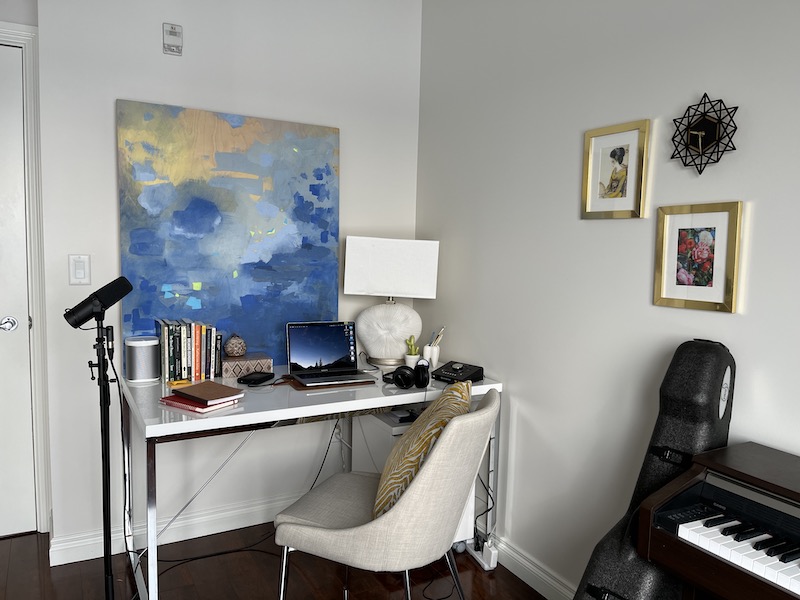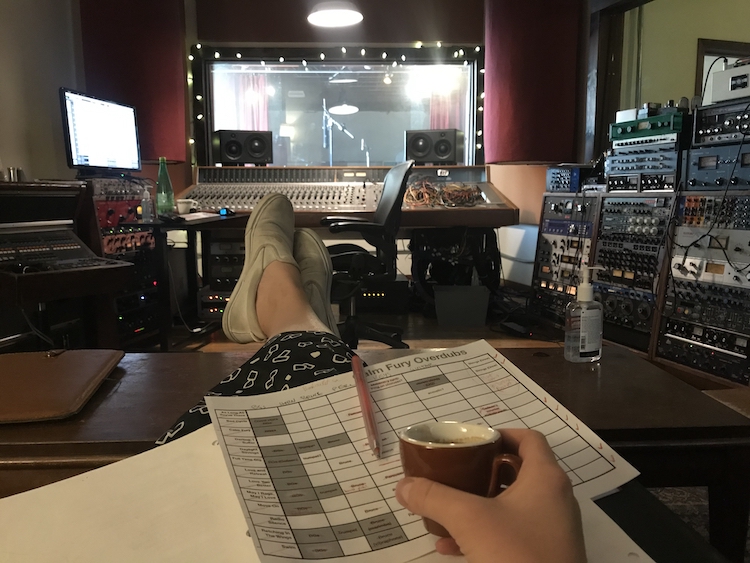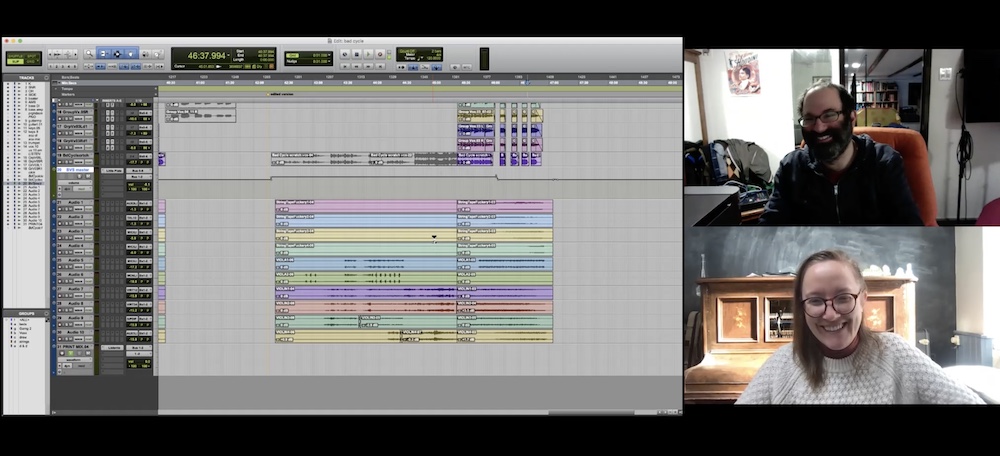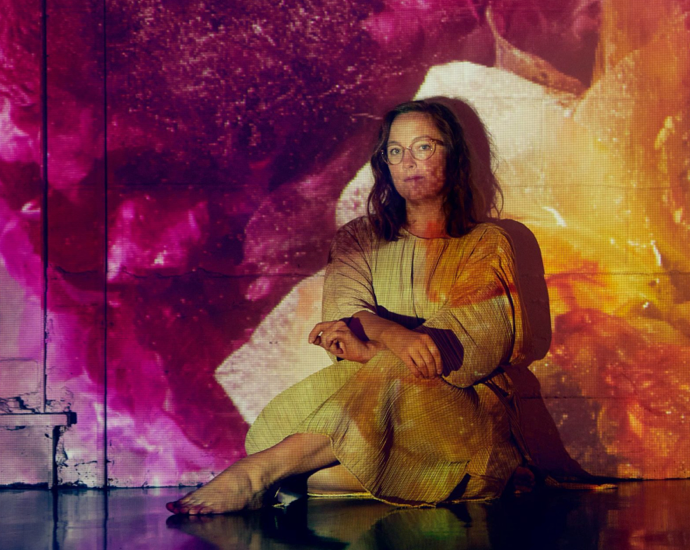Digging into the creative process, Byta speaks with artists, musicians, producers, DJs and anyone involved with music creation. A conversation about how they create, collaborate and share music. From studio setups to routines, and the first person to hear about the next 'big' work.
Where are you based?
I’m based in Toronto, ON.
How, when and where did you start making music? Are you primarily a musician or a producer, or do something else?
I generally think of myself as an artist first, whose primary medium is songwriting, and my roles as musician, singer and producer are always in service to the song.
I knew from a really young age that I wanted to be a musician, and my initial entry to that was singing – I performed for the first time at 8. Later on, I started teaching myself guitar at 12 so I could be my own accompanist, and within a few months I was writing songs using the only four chords I knew how to play.
Who would you consider some of your biggest influences when it comes to your “sound”?
Well, after plateauing with the whole self-taught guitarist thing around the age of 15, I began taking lessons at the music store I was working at part-time. My instructor, a man named Steve Fowler, started teaching me jazz standards out of The Real Book and introduced me to Bossa nova. To this day, Antonio Carlos Jobim is one of my favourite songwriters, and I still gravitate to Bossa nova and a lot of jazz voicings on guitar.
I would also say that Emmylou Harris’ work, specifically as a session vocalist, had a big influence on the way that I arrange vocals, both in leaning into moments of tension and in releasing them through a particular choice of harmony.
Explain your creative process? Do you have a routine?
I tend to go through cycles of creative focus. There are periods when I’m mostly working on administrative stuff, like booking tours or writing grants. Other times I’m working on pre-production and recording, and sometimes I’m zeroed in on songwriting.
The thing I try to do consistently no matter what though is to keep up a practice of journaling. Even that still ebbs and flows depending on my schedule, but I always keep a quarterly document on my laptop for reflective writing, just to get my thoughts out and into words, and an open note on my phone to jot down lines and lyric ideas when I’m on the go. Then, when I sit down to work on a musical idea, I’ve got something to draw from when it’s time to craft lyrics, because I’ve already done the work of sifting and distilling whatever themes are currently emerging from my subconscious.
What is your “studio” setup?
I went through a big move at the end of 2019, so most of my instruments and gear were temporarily in storage in an office I shared with co-workers when the pandemic hit. I was lucky to be the only one using the space throughout lockdown, so I was able to kind of convert it into an ad-hoc writing studio. It was very much a make-do situation, since all non-essential retail was shut down for such a long stretch there, so I rifled through filing cabinets and shelves to see what I could use to build a makeshift vocal booth. I ended up feeling a bit like a kid building a fort out of tablecloths and office supplies, but it did improve the vocal sound I was able to capture in the space and, I’ll be honest, it was super cozy.
Along with my tablecloth fort, I was using an ART M-Three multi-pattern condenser mic with an ART Voice Channel tube preamp and tracking through Logic. When I was live streaming or recording multiple instruments/voices, I used an Allen & Heath ZED10X board I’d actually been planning to sell before COVID, cuz it had sat in the box untouched for a few years. In spring/summer 2020, I was able to move in an upright piano, which was a game changer as far as writing is concerned.
For the last few months though, I’ve been in Alberta doing field research for an upcoming songwriting project, so it’s been back to basics. I have a simple writing setup at my temporary home base in Edmonton (UA Apollo Twin + Shure SM7b), and I take my Zoom H4N field recorder when I’m travelling around the province.

What is your process when working with other people? How is collaboration different in the studio vs working remotely?
When I’m bringing people in to work on something of mine, I make sure to have charts, lyrics and any general sonic ideas, references or guidelines all shared ahead of time. There are usually spreadsheets involved! I get pretty nerdy about thorough pre-production and organizing, partly because that’s just the way my brain works, but also because it helps me to stay in the moment as an artist/performer/bandleader once we get into the studio if I can lower the amount of decisions I have to make while we’re tracking.
I was able to do a fair bit of remote vocal arranging and session work through the pandemic, which had its challenges for sure, but also turned out to be a much-needed creative outlet too, especially while I wasn’t able to perform or work on my own record. In those cases, I always requested a separate vocal stem from the rest of the track so I could adjust my own monitor levels and make sure I was really locked in with the lead vocal. I based my initial arrangement on any production notes provided, and then if I needed feedback to decide between different ideas I came up with, I met with either the artist or the other vocalist singing on a track and we talked through the options, sometimes trying things out in real time over Zoom, other times by sending voice memos back and forth over text message.
At what point(s) are you comfortable letting other people hear what you are working on?
I’m usually happy to share a bare-bones idea of a song with fellow songwriters in a workshop capacity. And anyone I’m living with will probably hear what I’m working on too, across all stages of development. Besides that, I tend to keep it pretty close to the vest until I’m releasing a finished product, unless I’m sharing it with folks who are about to work on it with me.
Do you share your work in progress (streams or downloads)? Any technical frustrations?
I’m pretty careful about when and where I invite feedback on unfinished work. I’ve learned it’s better for my own process if I wait until I’ve got a song or a demo in a place where I’m already happy with the work and am able to filter out any criticism that isn’t constructive. Either that, or I’ll share it in really early stages, before I’m feeling precious about an idea, and when that’s the case it’s generally a rough voice memo passed through text message or email.
How do you know when a track/album is finished?
One benchmark for me is when I can listen to a mix/master, decide I’m happy, sit with it for 2-3 days, and then come back and listen again without anything glaring or making me cringe—that’s usually when I’ll draw a line and walk away.
After that, I think most of the changes I’d be making would be horizontal moves, they wouldn’t necessarily be improving the record. And although my instinct is to always make it as perfect as I possibly can, I know that’s ultimately a waste of my energy beyond a certain point and can end up killing the vibe of a record.
How do you listen to the final mixes/mastered work?
For my last record, I planned to mix it a few weeks after our original session at hotel2tango in Montréal with my engineer and co-producer Howard Bilerman. But shortly after we tracked everything, both Montréal and Toronto went back into a pretty strict lockdown, so Howard and I ended up having to do a lot of the work remotely.

We used a combination of Audiomovers (so I could hear the changes in real time at a decent resolution) and Zoom (so he could share his ProTools screen and we could chat through changes we wanted to make). We got everything as close to finished as possible, and then I had time to listen to those mixes over my own studio monitors, headphones, computer and even phone speakers to see how it translated across all of them. Then when restrictions eased up a bit, I went back to Montréal where Howard and I brought everything over the finish line together and we could both be listening in the same room, on the same monitors.

How important is pre-release security when sharing new work?
I definitely have some underlying anxiety about security, but it’s mostly to do with fear of failed hard drives! I’ve suffered more than my fair share of setbacks due to corrupted hard drives and failed backups over the years – I even wrote a song about it on my first LP called Amnesia.
As far as I know, folks aren’t scouring the internet trying to find a copy of my record before it’s released, so I don’t get too worried about security in terms of people hearing an album before they’re supposed to. Maybe one day that will be a problem I have!
Who on your team gets to hear the final versions first and why, what formats do they each need?
I usually share final versions with a handful of close friends and whoever the core players were via Dropbox.
Outside of your inner circle who are the people that will need to hear the new tracks next?
Anyone I’m collaborating with or hoping to collaborate with in the next stages – for example my publicist, creative director, music video director, animator – they all get a private SoundCloud link for streaming. If someone needs a downloadable file, I usually link them to .wav files in Dropbox. Always with a strict privacy caveat though!
Anything you are working on, anyone you are working with and want to share?
My album Calm Fury came out on March 4th! It’s a collection of songs I wrote after researching the way that Canadians experience, express and repress anger (especially women). I also co-host a podcast called The Fury Pod that explores how anger intersects with different themes (communication, repression, spirituality, etc.)
And, now that the album’s out and restrictions are loosening, I’m really looking forward to getting back to performing, so keep an eye out for Canadian tour dates later this year.
Stay up to date with music and news from Sarah Hiltz right here!

